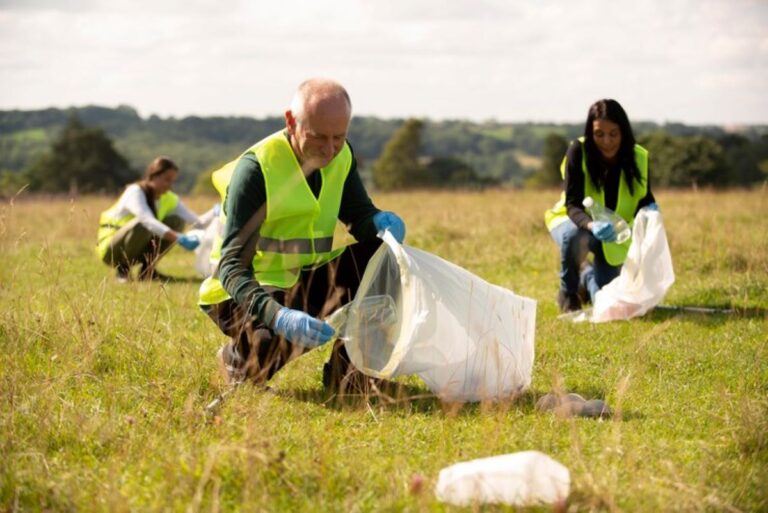As environmental concerns continue to rise, many individuals and communities are exploring sustainable practices to manage garden waste. Two common methods are garden waste removal and composting. While both aim to reduce waste and promote a healthier environment, they differ significantly in their environmental impact. This article delves into the benefits and drawbacks of each method, helping you make an informed decision about which is better for the environment.
Understanding Garden Waste Removal
Garden waste removal typically involves the collection and disposal of organic materials such as grass clippings, leaves, branches, and other green waste. This service is often provided by local councils or private companies, where the waste is transported to landfills or incineration facilities.
While garden waste removal is convenient, it raises several environmental concerns. The primary issue is that when organic waste is sent to landfills, it decomposes anaerobically, producing methane—a potent greenhouse gas that contributes significantly to climate change. In fact, composting food waste and applying it to land reduces greenhouse gas emissions by 78% compared to landfilling, as reported by the US Environmental Protection Agency.
Moreover, the transportation involved in waste removal contributes to carbon emissions, further exacerbating the environmental impact. Therefore, while garden waste removal may seem like a straightforward solution, its long-term effects on the environment can be detrimental.
The Benefits of Composting
Composting is a natural process that transforms organic waste into nutrient-rich soil amendments. By allowing organic materials to decompose in a controlled environment, composting significantly reduces greenhouse gas emissions and promotes soil health.
According to experts from Yale University, composting releases significantly less methane than landfilling. This is crucial in mitigating climate change, as methane is over 25 times more effective than carbon dioxide at trapping heat in the atmosphere over a 100-year period. Furthermore, a recent study conducted in Shiraz, Iran, found that home composting reduced CO₂-equivalent emissions by an impressive 19,076 tons per year, underscoring its effectiveness in combating climate change.
Composting not only reduces emissions but also enhances soil quality. As noted by Yale expert Silver, compost improves soil health by increasing organic matter, adding essential nutrients back into the soil, and fostering new plant growth. This creates a sustainable cycle where healthy soil leads to thriving gardens, which in turn can produce more organic waste for composting.
Comparing Environmental Impacts
Greenhouse Gas Emissions
When comparing the environmental impacts of garden waste removal and composting, greenhouse gas emissions are a critical factor. As previously mentioned, composting can reduce emissions by 78% compared to landfilling. This significant reduction highlights the importance of choosing composting over traditional waste removal methods.
Additionally, the US EPA reports that composting food waste and applying it to land results in more than three times the carbon sequestration compared to landfilling. This means that composting not only prevents harmful emissions but also actively contributes to reducing atmospheric carbon levels.
Soil Health and Biodiversity
Composting plays a vital role in enhancing soil health and promoting biodiversity. By returning organic matter to the soil, composting improves its structure, water retention, and nutrient content. This is particularly important in urban areas where soil degradation is common due to construction and pollution.
Healthy soil supports a diverse range of microorganisms, insects, and plants, creating a balanced ecosystem. In contrast, garden waste removal does not contribute to soil health and can lead to nutrient depletion in the long run, as organic materials are removed from the local environment.
Economic Considerations
From an economic perspective, composting can be more beneficial than garden waste removal. The US Composting Infrastructure Coalition reports that composting facilities employ twice as many people per ton of waste processed as landfills and four times more than incinerators. This job creation is essential for local economies and supports sustainable practices.
Moreover, composting can reduce costs associated with waste disposal. By composting at home or within communities, individuals can decrease their reliance on expensive waste removal services, leading to long-term savings.

How to Start Composting
Starting a composting system at home is easier than you might think. Here’s a simple guide to get you started:
- Choose a Compost Bin: Select a compost bin that suits your space and needs. Options range from simple piles to enclosed bins or tumblers.
- Gather Materials: Collect organic waste such as fruit and vegetable scraps, grass clippings, leaves, and small branches. Avoid meat, dairy, and oily foods, as these can attract pests.
- Layer Your Compost: Create layers in your compost bin, alternating between green materials (nitrogen-rich) and brown materials (carbon-rich). This balance is crucial for effective decomposition.
- Maintain Your Compost: Turn your compost regularly to aerate it and speed up the decomposition process. Keep it moist but not too wet.
- Harvest Your Compost: After a few months, your compost will be ready to use. It should be dark, crumbly, and have an earthy smell. Use it to enrich your garden soil.
Challenges of Composting
While composting offers numerous benefits, it is not without its challenges. Some individuals may find it difficult to maintain a compost system, particularly in urban settings with limited space. Additionally, improper composting can lead to odours and pests if not managed correctly.
Education and community support are essential in overcoming these challenges. Many local councils and environmental organisations offer workshops and resources to help residents start and maintain composting systems effectively. By fostering a culture of composting, communities can work together to reduce waste and improve environmental health. Click here to get more about garden waste removal near me: 5 services to compare before booking.
Conclusion: Making the Right Choice
In the debate between garden waste removal and composting, the evidence strongly favours composting as the more environmentally friendly option. Not only does it significantly reduce greenhouse gas emissions and enhance soil health, but it also contributes to local economies and promotes biodiversity.
By choosing to compost, individuals can play a vital role in mitigating climate change and fostering a sustainable future. Whether you opt for a home composting system or participate in a community composting programme, every little effort counts towards creating a healthier planet.
Ultimately, the choice between garden waste removal and composting is clear. Embracing composting not only benefits the environment but also enriches our gardens and communities, paving the way for a greener tomorrow.


